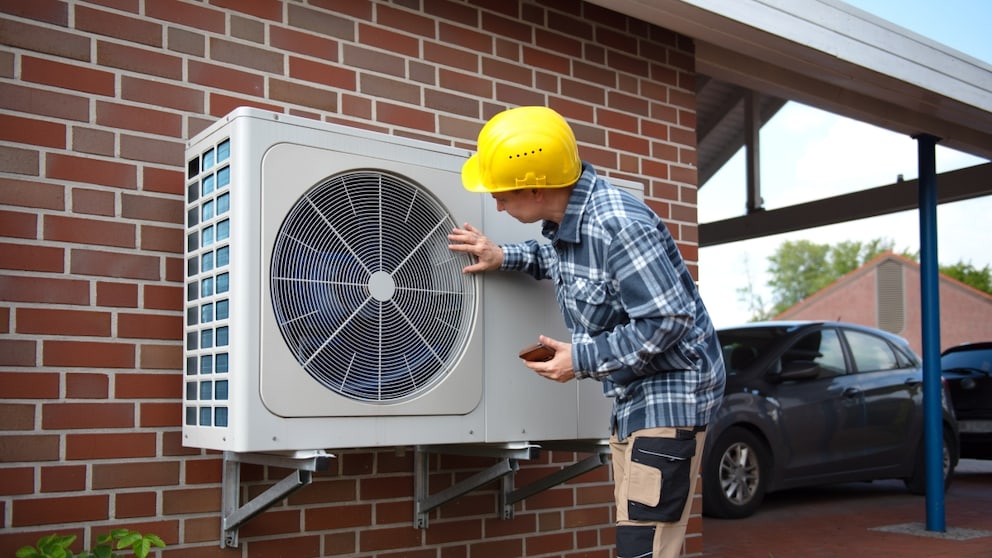October 10, 2024, 10:45 am | Read time: 4 minutes
The energy transition in Germany is progressing and is to be further accelerated by heating subsidies. From September 2024, homeowners can look forward to a subsidy from KfW (Kreditanstalt für Wiederaufbau). Below, you can find out how much the subsidy is, who benefits from it, and which types of heating are subsidized.
What took a long time could soon be worth the wait. The heating subsidy was approved several months ago, but interested parties had to wait longer for the subsidy. Now, the first applications can be submitted, and the first subsidies are to be paid out in September. The basis for this is the “Federal Subsidy for Efficient Buildings” (BEG).
Overview
What is the heating subsidy about?
As the name suggests, it is a financial subsidy from the federal government. Anyone switching to more climate-friendly heating systems can receive a retroactive payment from the KfW. The aim of the heating subsidy is to accelerate the switch to more energy-efficient and climate-friendly systems. The federal government not only provides support in the form of grants but also grants low-interest loans in some cases.
Which heating systems and conversions are subsidized?
The question now is what exactly falls under energy-efficient or climate-friendly heating systems and installations. The KfW has clear rules on this. The purchase and installation of the following systems is subsidized:
- Solar thermal systems
- Biomass heating systems
- Electrically driven heat pumps
- Fuel cell heating systems
- Hydrogen-capable heating systems
- Innovative heating technology based on renewable energies
In addition, the connection to a building or heating network as well as the specialist planning and construction management by an energy efficiency expert are also subsidized. KfW also emphasizes that self-built systems and used models are generally not eligible for funding.
How much funding is available
The KfW subsidizes the installation of a climate-friendly heating system in a single-family home with up to 30,000 euros. For multi-family houses, the funding depends on the number of residential units: There is 30,000 euros for the first apartment, 15,000 euros each for the second to sixth, and 8,000 euros each for the seventh apartment and above. Irrespective of the applicant group, a maximum of 70 percent of the eligible costs can be granted as a subsidy.
There is a basic subsidy of 30 percent for all the heating systems mentioned. A grant can be applied for for the total eligible costs. However, the KfW points out: “Some costs cannot be taken into account; they are not eligible.” Which specific costs are not “eligible” should be asked in each individual case.
In addition, a climate bonus of 20 percent and an income bonus of 30 percent can be granted on all the heating systems mentioned. There is also an efficiency bonus of five percent for heat pumps. The climate speed bonus is available, for example, if you replace an existing oil or coal heating system or a gas heating system that is at least 20 years old. The income bonus applies if your annual household income does not exceed 40,000 euros.
What you need to consider and who benefits
You should not miss out on subsidies. It is therefore worth marking important deadlines in your calendar. According to KfW: “If the project begins between the date of publication of the funding guideline in the Federal Gazette (29.12.2023) and 31.08.2024, the application can be made up until 30.11.2024.”
Private individuals who are owners of an existing, owner-occupied single-family home, an existing undivided multi-family home, or part of a condominium owners’ association can submit their application from 27.08.2024. The same applies to companies. Municipalities, on the other hand, will have to wait a while longer; applications will not be possible until November 2024.
In the “My KfW” customer portal, you can apply for the “Heating subsidy for private individuals – residential buildings” grant. From 30.09.2024, verification of identity will then be possible for owner-occupiers in single-family homes, while this will only be possible for owners in multi-family homes or for homeowners’ associations from November 2024.
However, there is another requirement that must be met before applying: You must hire an energy efficiency expert or a specialist company to have a confirmation of application (BzA) issued. Only with this confirmation can you submit an application and hope to receive the grant.

Experts Clarify Heat Pump in an Apartment Building? The Most Important Questions and Answers

Tenants and owners The cost of purchasing and using an air conditioning system

Modern Heating Study Shows How to Make Heat Pumps Even More Efficient
How does the application for a heating subsidy work?
As already mentioned, an expert must issue you with a confirmation of application (BzA). You must then have a supply or service contract in order to be able to submit the application. However, this contract only comes into force once you have received approval from KfW for funding for your project.
It is also important that you have an account with “Meine KfW.” If necessary, register to submit the application. Among other things, you will need the 15-digit BzA-ID. You must also have completed your project within 36 months of KfW’s approval. You must upload all supporting documents, including invoices, to the customer portal no later than 36 months after approval. Only then will the grant be paid out.

